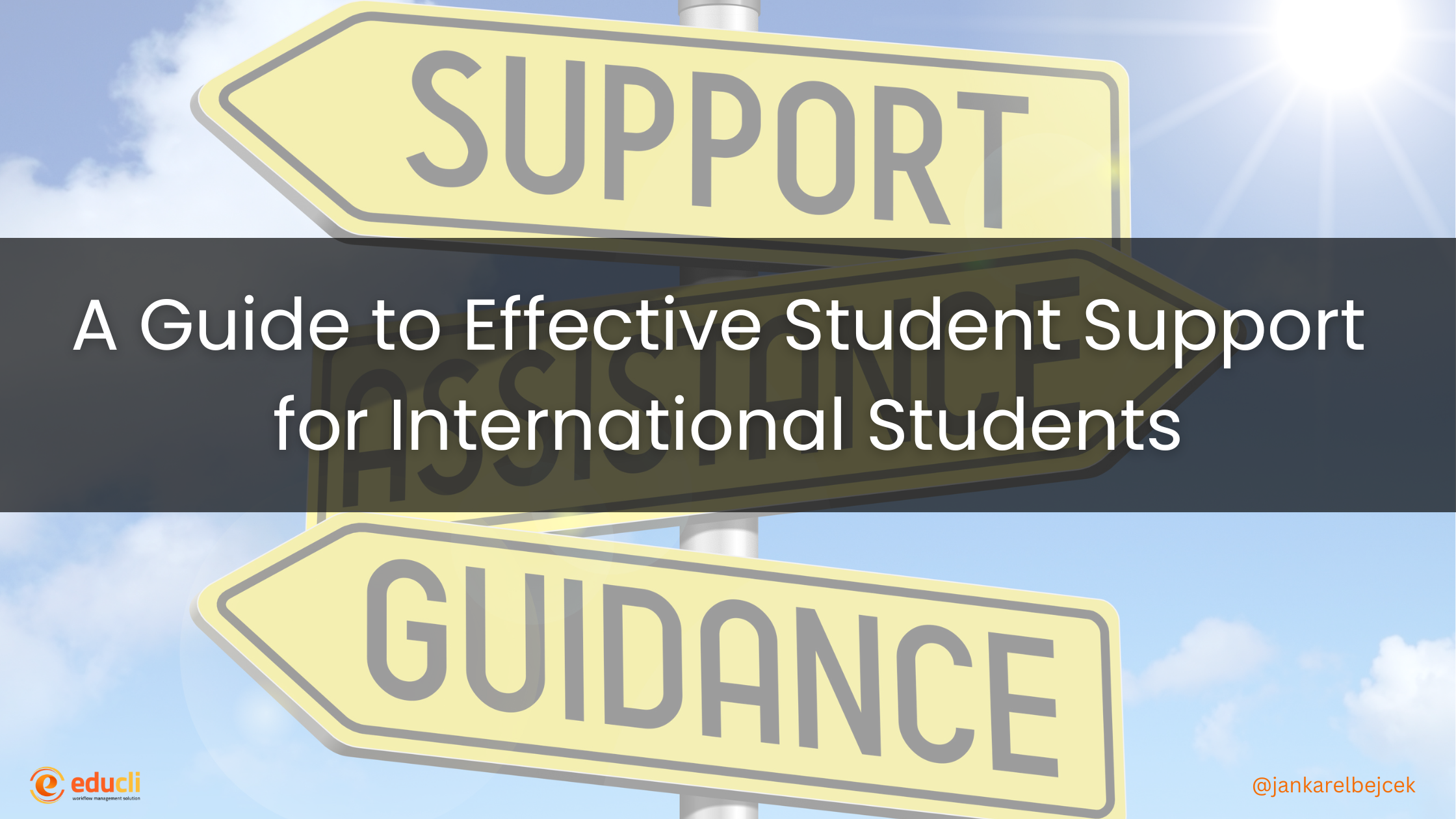A Guide to Effective Student Support for International Students – R U OK?
International students often face unique challenges when studying abroad, such as adapting to a new culture, managing academic pressures, and navigating visa regulations. As a student support officer, your role is crucial in ensuring their experience is as smooth and positive as possible. This guide, based on the National Code 2018 and ELICOS standards, will help you understand the requirements, what to learn, and how to manage student cases effectively.
Understanding the Role of Student Support
The primary responsibility of student support officers is to assist international students with their academic, personal, and visa-related issues. According to the National Code 2018, it is mandatory for education providers to offer support services to help international students adjust to life and study in Australia, ensuring they have access to resources that promote their well-being.
Key Responsibilities:
- Provide academic guidance and resources.
- Offer personal counseling services or refer students to appropriate services.
- Assist with accommodation and financial advice.
- Monitor student visa compliance.
- Facilitate orientation programs.
Key Requirements According to National Code 2018
The National Code 2018 specifies several standards for supporting international students, which education providers and their staff must adhere to:
Standard 6: Student Support Services
- Education providers must give access to orientation programs that help students understand their new environment, academic expectations, and visa requirements.
- Provide student support services (academic, personal, and professional) tailored to individual student needs.
- Ensure that students are aware of how to access the support services available to them.
Standard 8: Complaints and Appeals
- Have a process in place to manage student complaints and appeals fairly, transparently, and efficiently.
Standard 9: Deferring, Suspending, or Cancelling Enrolment
- Support students in understanding their rights and obligations if they wish to defer, suspend, or cancel their studies.
Requirements from ELICOS Standards
For providers offering English Language Intensive Courses for Overseas Students (ELICOS), additional standards govern student support:
ELICOS Standard P4: Student Support Services
- Ensure students have access to appropriate support services, including language assistance, personal counseling, and academic advice.
- Provide information on legal and emergency services, health services, and local community support.
ELICOS Standard P6: Welfare and Accommodation
- For students under 18, education providers must ensure appropriate accommodation and welfare arrangements are in place.
Essential Skills and Knowledge for Student Support Officers
To be an effective student support officer, you need to develop a broad skill set that covers both soft and technical skills:
- Cultural Competency
- Understanding different cultural backgrounds and practices helps in communicating effectively and providing tailored support.
- Academic Counseling
- Provide students with academic guidance, including course selection, learning strategies, and managing study pressures.
- Legal and Visa Knowledge
- Understand visa conditions and requirements for international students to ensure they remain compliant.
- Mental Health First Aid
- Mental health support is a key element, so being trained in mental health first aid can help you identify students in distress and provide timely assistance.
- Conflict Resolution
- Effective conflict resolution skills are essential when handling student complaints or disputes, ensuring they are managed fairly and sensitively.
Where and What to Learn
To meet the demands of a student support role, consider formal education and continuous professional development:
- Qualifications
- A qualification in International Student Advising, Education, or a related field is advantageous. Courses such as a Graduate Certificate in International Education can equip you with specialised knowledge.
- Professional Development
- Attend workshops and conferences by organizations like ISANA (International Education Association), which focus on student support and welfare.
- Cultural Sensitivity Training
- Cultural competency courses can help improve your understanding of diverse student backgrounds and needs.
- Mental Health Training
- Courses on mental health first aid and stress management will prepare you to support students facing personal difficulties.
6. Managing Student Cases
Managing individual student cases requires a systematic approach to ensure every issue is addressed appropriately. Here’s a framework you can follow:
- Initial Assessment
- Conduct a thorough assessment of the student’s needs, whether academic, personal, or visa-related. This can be done through interviews, surveys, or ongoing monitoring.
- Documentation
- Maintain clear records of all interactions and support provided. This will help track the student’s progress and provide evidence if any issues escalate.
- Referrals
- Recognize when a student requires specialized support (e.g., mental health services, legal advice) and refer them to appropriate professionals or organizations.
- Regular Follow-Up
- Follow up with students regularly to ensure their issues are resolved and provide continuous support. Schedule meetings, check-in emails, or one-on-one sessions to track their progress.
- Collaboration with Academic and Administrative Staff
- Work closely with academic staff to address any academic issues, and administrative staff to ensure the student is meeting visa requirements and is aware of important deadlines and obligations.
Best Practices for Effective Support
To provide the best support possible, keep the following best practices in mind:
- Be Approachable: Encourage students to seek help by creating a welcoming and supportive environment.
- Be Proactive: Anticipate common issues faced by international students and provide information early, such as visa conditions, cultural adjustments, and academic expectations.
- Maintain Confidentiality: Ensure that all student matters are handled with discretion and in compliance with privacy laws.
- Continuous Learning: Stay updated on changes in visa regulations, educational trends, and mental health resources to better serve your students.
Conclusion
Being a student support officer for international students requires a deep understanding of the challenges they face, strong communication skills, and a commitment to ongoing learning. By adhering to the National Code 2018 and ELICOS standards, and continuously developing your skills, you can provide high-quality support that ensures international students succeed both academically and personally.
This guide serves as a foundation for anyone looking to pursue a career in student support or improve their existing practice. With the right tools and knowledge, you can make a meaningful impact on the international student experience.





Leave A Comment